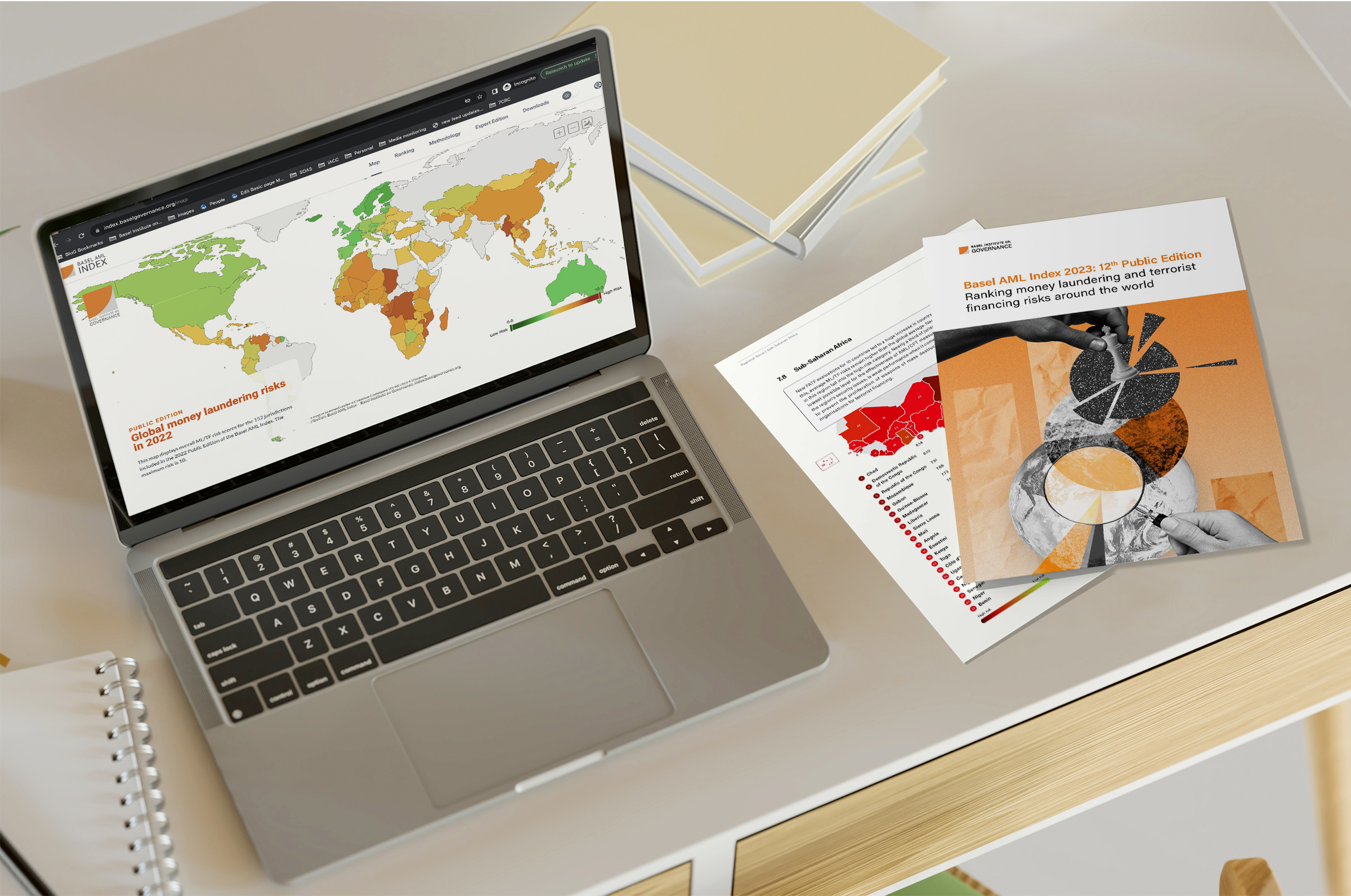Basel AML Index 2023: Action on money laundering more urgent than ever

Global money laundering and terrorist financing (ML/TF) risks just keep on rising, according to the 2023 Public Edition of the Basel AML Index.
And that has real impact on people’s lives today – from well-funded terrorist attacks to trillions of dollars flowing out of countries through corruption and organised crime.
The Basel AML Index is an independent ranking that assesses countries’ ML/TF risks and capacity to counter them. It draws on 18 indicators in five domains measuring different factors that contribute to high ML/TF risks.
The 12th Public Edition of the Basel AML Index reveals that the average global ML/TF risk level increased from 5.25 in 2022 to 5.31 in 2023, where 10 is the maximum risk.
Similar to last year, risks increased in four of the five domains measured by the Basel AML Index: corruption and bribery; financial transparency and standards; public transparency and accountability; and political/legal risks. Scores for the quality of anti-money laundering and counter-financing of terrorism (AML/CFT) frameworks remained static.
Most concerning is a drop in the effectiveness of AML/CFT systems, as our analysis of Financial Action Task Force (FATF) data shows. Even when countries have robust AML/CFT systems on paper, globally we are struggling to make these do what we desperately need them to do – prevent the misuse of the global financial system to funnel money from corruption and organised crime and to fund terrorism.
Topics in the news
To explore the consequences of implementing (or not implementing) AML/CFT standards, this year we take a deep dive into the data behind three topics in the news. In brief:
1 - New technologies: are we missing a trick?
Countries need to supercharge their efforts to understand the evolving financial crime risks of new technologies like cryptocurrencies. Compliance with the relevant FATF standard in this area has plummeted by a full 20 percentage points in the last two years.
Focusing regulation, supervision and enforcement on clearly identified risks is the only way to foster a thriving FinTech industry while protecting financial integrity, crypto users and investors.
2 - Cutting off funds for terrorists – not civilians
Countries need to do better at preventing terrorist financing through bogus non-profit organisations. This area shows the weakest levels of compliance with the relevant FATF standard – especially in regions struggling with conflicts and terrorism.
But we also warn that it is essential to take an informed, risk-based approach and not indiscriminately cut off funding to whole classes of non-profit organisations. There is a real danger of hindering vital humanitarian assistance and violating human rights.
3 - Confiscating illicit assets: the missing key to preventing crime
Confiscating criminal assets could mobilise much-needed resources for sustainable development, as well as show criminals and the corrupt that their actions don’t pay off in the end. But globally, it seems we are confiscating less than one percent of illicit financial flows.
Our analysis shows that countries’ law enforcement authorities are doing fairly well at the first part of this task: identifying and freezing illicit funds and other assets during investigations. But they don’t seem to be getting to the next, and crucial, stage – i.e. permanently confiscating enough illicit assets to create a deterrent effect.
That’s less a problem with their laws and more of a problem with their implementation. Globally, the effectiveness of confiscation measures according to FATF data is just 28 percent.
What’s the point?
Together, the analyses show – as we continuously stress and as the Basel AML Index aims to support – the need for a risk-based approach to ML/TF based on a thorough assessment of each country’s and sector’s specific context and threats.
And all three focus topics illustrate how AML/CFT deficiencies impact economic prosperity, security and sustainable development. Building resilience to ML/TF is not only about getting good scores from the FATF and the Basel AML Index. More importantly, it is:
- To prevent the harm to people and the planet caused by ML/TF and the corruption and crimes that generate those illicit funds.
- Because the same elements that make up a strong AML/CFT system are conducive to a well-functioning society and economy based on trust, transparency and the rule of law.
Learn more
- Download the report
- See the Public Edition ranking and map at: index.baselgovernance.org
- Watch the online launch on YouTube



